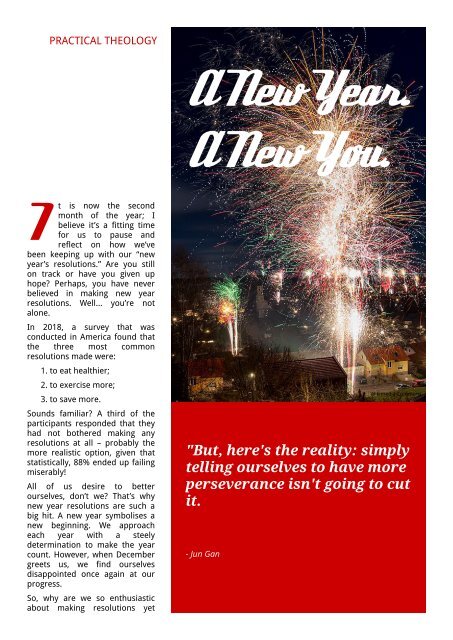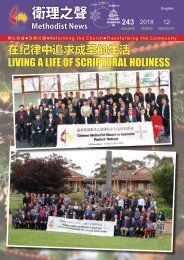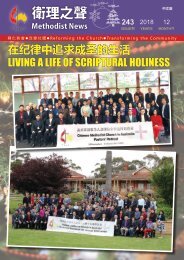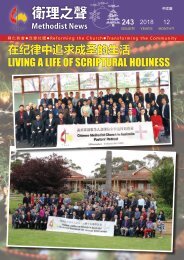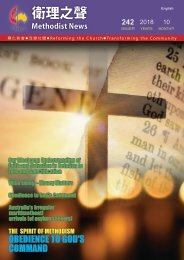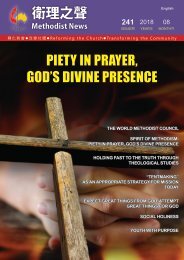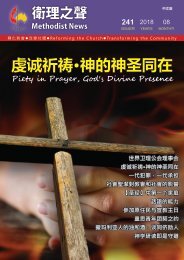Connect #001
You also want an ePaper? Increase the reach of your titles
YUMPU automatically turns print PDFs into web optimized ePapers that Google loves.
PRACTICAL THEOLOGY<br />
A New Year.<br />
A New You.<br />
I<br />
t is now the second<br />
month of the year; I<br />
believe it?s a fitting time<br />
for us to pause and<br />
reflect on how we?ve<br />
been keeping up with our ?new<br />
year?s resolutions.? Are you still<br />
on track or have you given up<br />
hope? Perhaps, you have never<br />
believed in making new year<br />
resolutions. Well? you?re not<br />
alone.<br />
In 2018, a survey that was<br />
conducted in America found that<br />
the three most common<br />
resolutions made were:<br />
1. to eat healthier;<br />
2. to exercise more;<br />
3. to save more.<br />
Sounds familiar? A third of the<br />
participants responded that they<br />
had not bothered making any<br />
resolutions at all ? probably the<br />
more realistic option, given that<br />
statistically, 88% ended up failing<br />
miserably!<br />
All of us desire to better<br />
ourselves, don?t we? That?s why<br />
new year resolutions are such a<br />
big hit. A new year symbolises a<br />
new beginning. We approach<br />
each year with a steely<br />
determination to make the year<br />
count. However, when December<br />
greets us, we find ourselves<br />
disappointed once again at our<br />
progress.<br />
So, why are we so enthusiastic<br />
about making resolutions yet<br />
"But, her e's the r eality: simply<br />
telling our selves to have mor e<br />
per sever ance isn't going to cut<br />
it.<br />
- Jun Gan<br />
Wikimedia Commons


